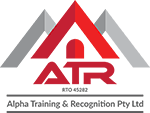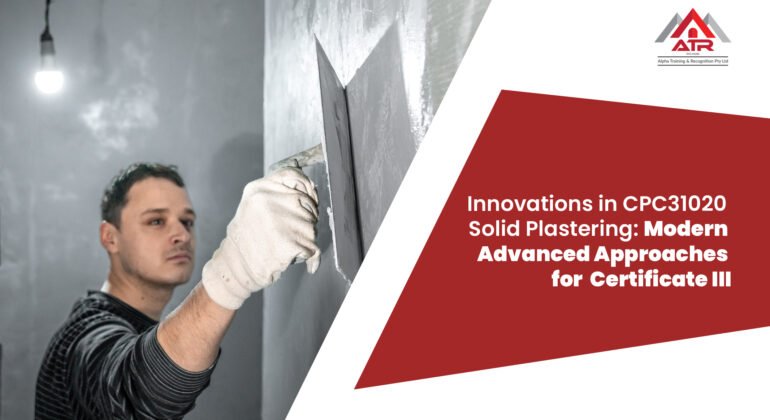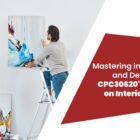CPC31020: Modern Solid Plastering Approaches
Overview:
Welcome to the cutting-edge world of solid plastering innovations with CPC31020, the Certificate III in Solid Plastering. In this comprehensive guide, we delve into the revolutionary techniques, contemporary trends, and hands-on training that define modern plastering practices. Whether you’re an aspiring plasterer or a seasoned professional, CPC31020 equips you with the skills and expertise needed to excel in this dynamic field.
Understanding CPC31020:
CPC31020 also referred to as Certificate III in Solid Plastering, is a comprehensive program designed to provide students with a deep understanding of plastering techniques, materials, and methods. This qualification covers a wide range of topics, from surface preparation to finishing touches, ensuring that graduates are well-equipped to succeed in the plastering industry.
Plaster Application:
At the core of CPC31020 lies the art of plaster application. Students learn how to apply plaster smoothly and evenly, creating seamless finishes that enhance the appearance and durability of walls and ceilings. From traditional hand application techniques to modern machine-assisted methods, graduates are proficient in a variety of plastering approaches.
Plastering Techniques:
CPC31020 explores a diverse range of plastering techniques, from basic rendering to advanced decorative finishes. Students gain hands-on experience with various tools and materials, learning how to achieve different textures, patterns, and effects to meet the unique requirements of each project.
Solid Plastering Skills:
Solid plastering requires a combination of technical skill and artistic flair, and CPC31020 ensures that students develop both. Through practical exercises and real-world simulations, graduates hone their plastering skills, mastering the intricacies of surface preparation, material application, and finishing techniques.
Rendering:
Rendering is a fundamental aspect of solid plastering, and CPC31020 covers the principles and practices of rendering in detail. Students learn how to prepare surfaces, mix and apply rendering materials, and achieve smooth, uniform finishes that provide a strong and durable base for subsequent plaster coatings.
Wall Finishes:
CPC31020 explores a variety of wall finishes, from traditional smooth surfaces to textured and decorative designs. Students learn how to create different finishes using plastering techniques such as troweling, floating, and sponging, allowing them to customize walls to suit the aesthetic preferences of clients.
Plastering Materials:
An understanding of plastering materials is essential for success in the plastering industry, and CPC31020 provides students with comprehensive knowledge of common plastering materials and their properties. From traditional lime and cement-based plasters to modern synthetic products, graduates are equipped to select the right materials for each project based on performance, durability, and aesthetic considerations.
Plastering Methods:
CPC31020 covers a range of plastering methods, including hand application, machine spraying, and trowel finishing. Students learn how to choose the most appropriate method for each situation, taking into account factors such as surface condition, project scale, and desired finish.
Surface Preparation:
Effective surface preparation is crucial for achieving quality plaster finishes, and CPC31020 emphasizes the importance of proper surface preparation techniques. Students learn how to assess surfaces for defects, clean and prime surfaces for plaster application, and address common issues such as cracks, holes, and unevenness.
Finishing Touches:
The finishing touches can make a significant difference in the overall appearance and durability of plastered surfaces, and CPC31020 teaches students how to add those final flourishes that elevate a project from good to great. Whether it’s smoothing rough edges, blending seams, or adding decorative elements, graduates have the skills and expertise to ensure that every plastered surface is finished to perfection.
Decorative Plastering:
Decorative plastering allows for creative expression and customization, and CPC31020 encourages students to explore this aspect of the craft. From ornamental moldings to textured designs and stenciled patterns, graduates learn how to use plaster as a medium for creating visually striking and architecturally significant features that enhance the aesthetic appeal of any space.
Textured Finishes:
Texture adds depth and dimension to plastered surfaces, and CPC31020 teaches students how to create a variety of textured finishes using different tools and techniques. Whether it’s a smooth, polished look or a rough, rustic texture, graduates have the skills and knowledge to achieve the desired effect and enhance the visual impact of their plastering work.
Repair Techniques:
Repairing damaged or deteriorated plaster is a common task in the plastering industry, and CPC31020 covers a range of repair techniques to address various issues. From patching small cracks and holes to restoring historic plasterwork, graduates learn how to assess damage, select appropriate repair materials, and execute repairs with skill and precision.
Plastering Theory:
A solid understanding of plastering theory is essential for success in the field, and CPC31020 provides students with the theoretical knowledge needed to complement their practical skills. From understanding the chemical properties of plaster to analyzing structural considerations and building codes, graduates emerge as well-rounded professionals equipped to tackle the challenges of modern plastering projects.
Practical Applications:
CPC31020 emphasizes hands-on training and practical applications to ensure that students are prepared for real-world plastering challenges. Whether it’s working on mock-up projects in a controlled environment or gaining on-the-job experience through work placements, graduates have the opportunity to apply their skills and knowledge in a practical setting, building confidence and proficiency along the way.
Hands-on Training:
Hands-on training is a cornerstone of CPC31020, allowing students to develop practical skills and techniques under the guidance of experienced instructors. From mastering the use of plastering tools to refining their application techniques, graduates benefit from immersive learning experiences that prepare them for success in the field.
Sustainable Plastering:
Sustainability is an increasingly important consideration in the construction industry, and CPC31020 explores eco-friendly plastering practices and materials. From using recycled and renewable resources to minimizing waste and energy consumption, graduates learn how to implement sustainable plastering solutions that reduce environmental impact without compromising performance or quality.
Eco-friendly Materials:
CPC31020 introduces students to a range of eco-friendly plastering materials and techniques designed to minimize environmental impact. From low-VOC plaster products to natural and biodegradable additives, graduates learn how to select and use materials that promote sustainability and contribute to a greener built environment.
Contemporary Trends:
Staying abreast of contemporary trends is essential for success in any industry, and CPC31020 keeps students informed about the latest developments in the plastering industry. Whether it’s new technologies, emerging design trends, or changing consumer preferences, graduates learn how to adapt to evolving market dynamics and stay ahead of the competition.
Plastering Industry:
The plastering industry offers a wide range of job opportunities for skilled and qualified professionals, and CPC31020 prepares graduates to pursue careers in various sectors, including residential construction, commercial development, and heritage restoration. Whether it’s working for a plastering contractor, starting their own business, or specializing in niche areas such as decorative plastering, graduates have the flexibility to explore diverse career paths and advance their careers in the industry.
Job Opportunities:
With the demand for skilled plasterers on the rise, CPC31020 opens up a world of job opportunities for graduates. Whether it’s working on new construction projects, renovating existing buildings, or restoring historic landmarks, graduates can find rewarding and fulfilling careers in the plastering industry with ample opportunities for career advancement and professional growth.
Career Advancement:
CPC31020 serves as a launching pad for career advancement in the plastering industry, providing graduates with the skills, qualifications, and confidence needed to pursue higher-level roles and responsibilities. Whether it’s becoming a lead plasterer, starting their own plastering business, or specializing in niche areas such as decorative or heritage plastering, graduates have the opportunity to carve out successful and fulfilling careers in the industry.
Plastering Tools:
CPC31020 familiarizes students with a variety of plastering tools and equipment used in the trade. From trowels and floats to mixers and sprayers, graduates learn how to select, use, and maintain plastering tools to ensure optimal performance and safety on the job.
Safety Gear:
Safety is paramount in the plastering industry, and CPC31020 emphasizes the importance of proper safety gear and practices. Students learn how to identify and mitigate common hazards, use personal protective equipment (PPE) correctly, and adhere to industry safety standards and regulations to prevent accidents and injuries on the job.
Equipment Maintenance:
Proper maintenance of plastering equipment is essential for ensuring longevity, reliability, and performance. CPC31020 teaches students how to inspect, clean, and maintain plastering tools and equipment to extend their lifespan, minimize downtime, and maximize productivity on the job.
Conclusion:
CPC31020, the Certificate III in Solid Plastering, represents a significant advancement in modern plastering education, offering students a comprehensive and practical training experience that prepares them for success in the industry. From mastering plastering techniques to understanding sustainable practices and contemporary trends, this qualification equips graduates with the skills, knowledge, and confidence needed to excel in a dynamic and rewarding field. Whether you’re just starting your journey in solid plastering or looking to advance your career, CPC31020 provides the foundation for a successful and fulfilling career in the plastering industry.



